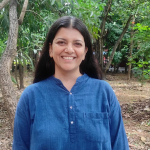The University offers the Master’s Programme in Public Policy – a two-year interdisciplinary programme focusing on the interface between policy, social sciences, and the law. Introduced in 2014, this programme provides comprehensive training in designing public policies for the complex societal problems, translating policies into deliverable programmes, and in evaluating the efficacy of policies. Through this programme, NLSIU trains young professionals to become policy practitioners capable of supporting inclusive and sustainable development.
India is one of the fastest growing economies of the world, continuously faced with challenges of justice, inequity, exclusion, and progress. The study of public policy concerns how the State can respond to the new dynamic challenges that emerge in society. As every legislation requires clear policy formulation, there is demand for trained professionals who will be equipped to design, implement, and evaluate policies and programmes. We derive inspiration from our transformative Constitution while addressing the challenges of diverse national needs.
Pedagogy: We emphasise on a dialectical pedagogy that encourages students to question the complexities in the practice of public policy arising from real-life situations of people from a diverse set of social and economic backgrounds. The programme has adopted an innovative pedagogy which combines reflective learning through classroom discussions, in-field exposures, solving problems for real-world clients, internship and research dissertation.
Candidates with any graduate degree can apply for the MPP programme. To view the academic and examination regulations, please click here.
For more details on eligibility and admissions process, please click on the admissions tab on this page.
Related Videos
You can watch all programme related videos on the ‘Videos’ tab of this page.
The Academic Year will commence on July 1, 2025.
Application Deadline Extended to March 30, 2025 | View Corrigendum
Eligibility
Any person holding a Bachelor’s degree in any discipline from a recognized national or international University is eligible to apply to the programme. Applicants in the General Category should have graduated with an aggregate of not less than 45% of total marks. Applicants in the SC or ST or OBC-NCL or PWD category should have graduated with an aggregate of not less than 40% of total marks. Students in the final year of their Bachelor’s degree are also eligible to apply. However, their final offer of admission shall be contingent upon successful completion of their Bachelor’s degree with the minimum aggregate marks specified above. Proof of completion of the qualifying degree has to be submitted no later than December 31, 2025.
International Students
Candidates can apply for the NLSAT – International Examination for “international student” category, if they are a citizen of a country other than India.
Admission notification for Academic Year 2025-26 is released! For more details, click here.
International students may apply through internationaladmissions.nls.ac.in on or before March 30, 2025.
Please note: The duration of the NLSAT International examination has been extended from 120 minutes to 150 minutes. View Corrigendum.
Admission Process
The maximum intake is up to 120 students for the 2-year MPP programme in the Academic Year 2025-26 and ONLY students qualifying as per the criteria set out below will be admitted. Admission to the programme will be through an all-India written admission test, the NLSAT-MPP.
NLSAT-MPP
All candidates seeking admission to the programme shall appear for the National Law School Admission Test for Masters in Public Policy (NLSAT-MPP). The NLSAT-MPP will have a single question paper comprising two parts – Parts A and B. All candidates shall be required to attempt both parts of the question paper. The examination shall be for a duration of 150 minutes.
Part A
Part A will consist of 75 Multiple-Choice Questions and shall be for a maximum of 75 marks. Each question will be of one mark. 0.25 marks shall be deducted for each wrong answer, and for each unanswered question. Part A of the NLSAT-MPP will consist of questions relating to (a) Comprehension; (b) Current Affairs; and (c) Critical reasoning.
Part A will constitute the first stage of the admissions process. A rank list of candidates will be prepared based on their performance in Part A of the NLSAT-MPP. To be eligible for evaluation of Part B of the NLSAT-MPP paper, a candidate should have secured more than zero marks in Part A of the paper.
From amongst these eligible candidates, Part B of the NLSAT-MPP answer scripts will be evaluated in a ratio of 1:5 based on performance in Part A. That is, five candidates per seat available will qualify for the evaluation of Part B of the examination.
Part B
Part B will consist of questions related to policy, and quantitative skills which shall be for a maximum of 75 marks. A fresh and final rank list shall be prepared based on the cumulative performance in Parts A and B of the NLSAT-MPP.
Offers of admission shall be made according to this final rank list subject to the candidate satisfying the following conditions:
(a) The candidate should have secured more than zero marks in both Parts A and B of the NLSAT-MPP.
(b) A candidate seeking admission in the General Category or EWS categories must secure a score above the 75th percentile of the eligible candidates in the aggregate score of Parts A and B. A candidate seeking admission in the SC or ST or OBC-NCL or PWD category must secure a score above the 40th percentile of the eligible candidates in the aggregate score of Parts A and B. In case where more than one candidate obtain the same aggregate score of Part A and Part B, the marks obtained in Part B shall be used to break the tie between them and determine their rank.
Note: The applicable reservations policy shall be applied at each stage of the admissions process.
Important Dates
- The NLSAT-MPP will be held on April 27, 2025 (Sunday), from 10.00 am to 12.30 pm in centres across the country.
- Application forms for the programme are now available at nlsatadmissions.nls.ac.in
- Application fees of Rs. 2500 (Rupees Two thousand five hundred only) shall be payable at the time of submission of the application. Candidates belonging to the SC or ST or OBC-NCL or PWD or EWS shall be required to pay Rs. 2000 (Rupees Two Thousand only).
- Application deadline extended till 11:59 pm on March 30, 2025.
- The final admissions list will be published by the end of May 2025. A candidate’s provisional admission will become final only after verification of the originals of documents and payment of fees. The Academic Year will commence from July 1, 2025.
NLSAT will be held in several centres across the country. List of centres will be available on the application portal. The syllabus for the NLSAT-MPP will be available on the website of the University in the first week of January. Fees and other details of the programme are also available on the fee tab of this page.
Intake and Reservation
Seats shall be reserved as follows:
- Scheduled Caste – 15%
- Scheduled Tribe – 7.5%
- Other Backward Classes (NCL) – 27%
- Economically Weaker Sections – 10%
- 5% of the total intake shall be reserved horizontally for Persons with Disabilities (PWD).
- 30% of the total intake shall be reserved horizontally for Women.
- 25% of the total intake shall be reserved horizontally (compartmentalised) for Karnataka Students*.
* Karnataka Students Category:
1. Candidates who have studied for not less than 10 years in a recognized educational institution in Karnataka shall be eligible to be considered as ‘Karnataka Students.’
2. Candidates who have not completed ten years of study in Karnataka shall be eligible to apply under the Karnataka Students category if they fall under any of the below categories:
a) Children of defence personnel/ex-servicemen, who at the time of joining service, have declared their hometown to be in the State of Karnataka, and who have served or are serving outside Karnataka, corresponding to the candidate’s years of study outside Karnataka.
b) Children of employees of the Karnataka State Government who have served or are serving outside Karnataka corresponding to the candidate’s years of study outside Karnataka.
c) Children of serving or retired employees belonging to the Karnataka cadre of the All India Services (IAS/IFS/IPS), who have served or are serving outside Karnataka corresponding to the candidate’s years of study outside Karnataka.
d) Children of working or retired employees in the Central Armed Police Force service, who upon joining service declared their hometown to be in the State of Karnataka, and who have served or are serving outside Karnataka, corresponding to the candidate’s years of study outside Karnataka.
Illustration: If the candidate has studied in Karnataka for three (3) years, they must prove that their parent/s were serving outside Karnataka for at least seven (7) years corresponding to their own period of study outside Karnataka.
If the candidate has not studied in Karnataka continuously for at least one (1) year, they must prove that their parent/s were serving outside Karnataka for at least ten (10) years corresponding to their own period of study outside Karnataka.
3. Eligible candidates must keep their Study Certificates issued by their School/s and other relevant documents ready to be submitted at the time of counselling/admission.
Apply for the ProgrammeThe official admission notification containing the above details for the Academic Year 2025-26 has been released. View the official notification here.
Master’s Programme in Public Policy at NLSIU is a two-year programme organised through six trimesters. The programme is a strong blend of theory-driven and skill-enhancing courses. Apart from the courses focused on the theory and practice of public policy, the programme includes courses across several disciplines including economics, law, sociology, and politics (including political economy), in ways that allow participants to reckon with complex features of Indian society. Classrooms follow innovative and integrative pedagogy encouraging participants to share their perspectives on contemporary policy issues, and the learning revolves around discussions in the light of theories and practices.
The course intends to combine reflective and interactive learning with field exposure and problem-solving tasks. The pedagogy encourages the amalgamation of divergent and convergent thinking which is further judged in the dissertation where students are given the opportunity to use the research training received in the programme to explore, analyse, and effectively articulate their findings on policy relevant questions. The evaluation over the two years is based on the dual criteria of: (i) knowledge, which is periodically assessed through end-term examinations; and (ii) the skills, that are continuously assessed through various evaluations including assignments, projects, presentations, and debates.
Course Structure
- Core Courses: 50 credits.
- Elective courses: 16 credits.
- Field Work: 2 Credits (exposure to communities)
- Client-led Projects: 2 Credits (exposure to public/private/non-profit organizations)
- Seminar Courses: 4 credits
- Dissertation: 10 credits
Click on each of the titles below to know more about the different components:
Rural Experiential Learning and Investigation is an essential component of public policy pedagogy. MPP participants bridge the division between ‘policy makers’ and ‘policy scholars’ through this grounded field work experience where they observe how various interconnected social, political, and economic problems are addressed. After the first trimester, the participants spend three weeks in a community facilitated by grassroots organizations. This field work will be carried out in groups of 2 or 3 participants to develop hands-on understanding on structural as well as institutional apparatuses that facilitate or hinder policy efficacy.
Policy analysis can serve as advice provided to a client to solve public problems. Therefore, working with clients that regularly advise the government on public policies is an important part of our pedagogy. After the second trimester, students will work with diverse kinds of client organizations to gain experience in addressing real-world policy related issues. This first hand exposure to public policy projects provide them with an opportunity to apply policy analysis tools to real world policy settings. For these client-led projects, students may be required to work with the organization or undertake fieldwork in localities where the organization is making intervention.
Integral to the requirements of the Master’s Programme in Public Policy is the writing a dissertation worth 10 credits, work for which is carried out in the fourth, fifth and sixth trimesters. Students’ course work, as well as out-of-class-room learning via fieldwork and client-led projects, in the first three trimesters of study introduces them to potential research topics related to policy for conundrums faced by human communities in their internal interactions as well as with the wider ecosystems they are connected to. Thus, by the end of the first year, students in the programme receive sufficient grounds for formulating research problems that can be interrogated in a dissertation.
Working toward the dissertation requirement provides students fulsome training in evidence-based research involving skills in judgment for engaging data and finding suitable conceptual frameworks for the collection and/or analysis of both data and relevant scholarship on the theme of research.
Each candidate is allocated a dissertation supervisor under whose supervision they work to prepare a research proposal, an appropriate research methodology and a complete dissertation that addresses the identified research questions. Different components of the written work for the dissertation are evaluated on an ongoing basis by the supervisor and an appointed co-examiner; the process involves viva-voce too. Candidates’ work for their dissertations is facilitated by a 2 credit Dissertation Seminar course that is offered in the fifth semester of their studies. Through these seminars, participants gain interdisciplinary exposure to the research theme of their choice.
Altogether, the dissertation component of the Masters Programme in Public Policy offers a rare and valuable opportunity for students at this stage in their academic careers to consolidate their skills for independent research and for producing written policy-relevant documents of a good standard.
To know more about internships and placements, visit the FAQs section of the MPP page.
Courses | AY 2024-25
Note: The exact trimester in which the courses are taught may vary at times.
Year 1
Introduction to Public Policy (IPP) – 2 credits
Principles of Economics – 2
Introduction to Data Systems (IDS) – 4
Politics and Society in India -2
Transformative Constitutionalism – 3
Reading Judgments and Statutes (RJS) – 2
Policy Analysis and Clinic (PAC) – 2
Research Methodology (RM) – 3
Economics for Public Policy (EPP) – 3
Rights, Duties and Institutions – 3
Social Transformation – 2
Contract Management and Negotiations (CMN) – 2
Policy Dialectics (Seminar Course) 2
Economic Development of India (EDI) – 2
Public Finance (PF) – 3
Law, Policy, and Development (LPD) – 3
Accountability and Governance (AG) – 2
Elective 1 – 4 credits
Year 2
Policy Design and Evaluation (PDE) – 2
Regulatory Governance and Sectoral Workshops (RGS) – 4
Elective2 – 4 credits
Elective3 – 4 credits
Policy Practice (PP) – 2
Responsible Business (RB) – 2
Dissertation Seminar – 2
Elective 4 – 4 credits
Dissertation- 10
Fieldwork – 2
Client led Projects (CLP) – 2
Academic Calendar for A.Y. 2024-25 | Trimester III (March 2025 – May 2025)
| Date | Day | Particulars |
| 4-Mar-2025 to 7-Mar-2025 | Tuesday Wednesday Thursday Friday |
Repeat exams for Trimester II |
| 4-Mar-2025 | Tuesday | Commencement of classes – core and elective |
| 31-Mar-2025 | Monday | Holiday Khutub-e-Ramzan |
| 10-Apr-2025 | Thursday | Holiday Mahaveera Jayanthi |
| 14-Apr-2025 | Monday | Holiday Dr. B.R. Ambedkar Jayanthi |
| 18-Apr-2025 | Friday | Holiday Good Friday |
| 1-May-2025 | Thursday | Holiday May Day |
| 17-May-2025 | Saturday | Deadline for Elective Term/Seminar paper submission |
| 23 May 2025 | Friday | Last day of classes (core and elective) |
| 24-May-2025 | Saturday | Oral Presentations for Elective Courses |
| 26-May-2025 to 31-May-2025 |
Monday Tuesday Wednesday Thursday Friday Saturday |
End Term Examinations |
| 17-Jun-2025 to 20-Jun-2025 |
Tuesday Wednesday Thursday Friday |
Repeat exams for Trimester III |
| TBA | TBA | Commencement of AY 2025-26 Trimester I classes (core and elective) |
*This date is subject to change depending on final holiday list from the University.
Fee Structure for AY 2025-26 (First Year Students)
Admission fee (one time) – Rs. 13,000/-
Tuition and facilities fee (per annum) – Rs. 2,96,000/- p.a.
Off-Campus housing fee (per annum) – Rs. 1,75,000/- p.a.
Total fee per annum – Rs. 4,84,000/-
One Time Refundable Deposit
Refundable deposits for SC/ST category students – Rs. 17,500/-
Refundable deposits for other students – Rs. 22,000/-
The total amount payable by SC/ST category students is Rs. 5,01,500/-
The total amount payable by other students is Rs. 5,06,000/-
View the official fee notification.
Note:
- Housing Fee includes meal plan for breakfast, lunch, dinner and an evening snack.
- All students are required to reside on off-campus housing provided by the university.
- Refundable deposit will be refunded either upon graduation or admission withdrawal. The refund will be subject to the deduction of applicable convocation fees, fees for issue of certificates, and other outstanding dues, if any.
View the official fee notification for existing students for AY 2025-26:
Financial Aid
The University offers means-based scholarships. To know more about NLSIU’s financial aid options for students, click here.
Fee Structure for International Students for AY 2025-26 (First Year Students)
Admission fee (one time) – Rs. 39,000/-
Tuition and facilities fee – Rs. 8,88,000/- p.a.
Off-Campus housing fee (per annum) – Rs. 1,75,000/- p.a.
Total fee per annum – Rs. 11,02,000/-
One Time Refundable Deposit
Refundable deposits – Rs. 66,000/-
The total amount payable at the time of admission, by international students is Rs. 11,68,000/-
View the official fee notification.
Note:
- Housing Fee includes meal plan for breakfast, lunch, dinner and an evening snack.
- All students are required to reside on off-campus housing provided by the university.
- Refundable deposit will be refunded either upon graduation or admission withdrawal. The refund will be subject to the deduction of applicable convocation fees, fees for issue of certificates, and other outstanding dues, if any.
The fee refund policy for AY 2025-26 is available here.
Faculty Videos | Master’s Programme in Public Policy
Master’s Programme in Public Policy – A Glimpse into the MPP Classrooms | Dr. Devyani Pande
Dr. Sneha Thapliyal on what makes our Master’s Programme in Public Policy (MPP) unique, and the opportunities available to graduates.
Dr. Sony Pellissery on the various career trajectories available to graduates of our Master’s Programme in Public Policy.
Dr. Aniket Nandan on how the MPP programme helps you understand the intersection of real-world issues with constitutional frameworks.
Students Speak | MPP
MPP Students Speak | Why Public Policy at a Law School?
MPP Students Speak | Why did you choose public policy?
Riah, a 2nd year student in our Master’s Programme in Public Policy (MPP) talks about how the immersive field work and dissertation components have helped her gain a more nuanced understanding of public policy.
Larissa, a 1st year student in our Master’s programme in Public Policy (MPP) talks about the transformative effect the rural immersion and experiential learning components of the programme have had on her.
Zoe, a 1st year student in our Master’s Programme in Public Policy (MPP), shares her experience, having joined right after her undergraduate degree. The pedagogy and interdisciplinary approach equips professionals from diverse backgrounds to become change makers.
NLSIU Students Speak | Atish, a 2nd year student in our Master’s Programme in Public Policy (MPP), talks about how studying public policy at a law school is enriching his perspective as a policy practitioner.
Videos from 2022 & 2023
NOTE: For updated information on the current academic year, please refer to the latest videos from 2024.
Information Session – March 2023
Watch the full recording of the live Information Session on NLSIU’s MPP programme held on February 20, 2023. The session covered various aspects of the programme including an overview, eligibility criteria, and the admissions process. Attendees were able to raise questions in a live Q&A section in the Session as well.
Yes, the MPP is a full time programme.
Admissions will be through the National Law School Admissions Test (NLSAT-MPP), scheduled to be held on April 27, 2025.
The NLSAT-MPP for the next Academic Year will be held on April 27, 2025 between 10 am-12:30 pm in centres across the country.
Candidates will be permitted to carry basic calculators inside the Test Centre.
Note: Scientific calculators are not permitted.
The NLSAT-MPP will have a single question paper comprising two parts – Parts A and B. All candidates shall be required to attempt both parts of the question paper. The examination shall be for a duration of 150 minutes.
Part A
Part A will consist of 75 Multiple-Choice Questions and shall be for a maximum of 75 marks. Each question will be of one mark. 0.25 marks shall be deducted for each wrong answer, and for each unanswered question. Part A of the NLSAT-MPP will consist of questions relating to (a) Comprehension; (b) Current Affairs; and (c) Critical reasoning.
Part B
Part B will consist of questions related to policy, and quantitative skills which shall be for a maximum of 75 marks.
Candidates are allowed to underline parts of the passage or questions. However, making any other marking or writing notes directly on the question paper is prohibited. A separate page is provided for making notes and for rough work.
No. The examination lasts two and a half hours. The question paper booklets can only be opened at the start of the examination at 10:00 am and no separate time is provided for filling in details or for reading the questions.
Embedded in the values of collaboration and participation, our MPP students are equipped with analytical skills and critical thinking. They are trained to engage in all levels of policy from design, implementation, monitoring and evaluation. Our students acquire skills in policy memo writing, preparation of policy briefs, desk and field research with advanced knowledge in research methodology, case preparation, data analysis, policy design and evaluation through training and on-the-job internships across a variety of organisations. Additionally, they are exposed to managing negotiation and case presentation. Students also voluntarily take up internship opportunities across diverse fields.
Many of our students take up internship opportunities in diverse fields including agriculture, development, gender and social inclusion, urban infrastructure, and international affairs. Previous internship avenues have included governmental organisations, NGOs, inter-governmental institutions, research organisations, policy think tanks, academic institutions and corporations.
If you are interested in hosting an intern or recruiting our students, please write to /.
You can find out more about career opportunities for MPP graduates in the Placement Brochure of the MPP Programme – 2023.
Also, watch this video on career opportunities with Prof. Sony Pellissery, founding faculty of the MPP Programme at NLSIU:
The placement/recruitment timeline for MPP can be found here.
If you are interested in hosting an intern or recruiting our students, please write to /.










